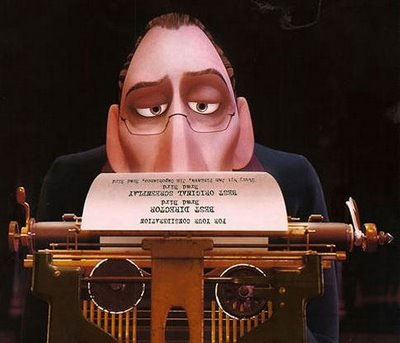
#1: Un personaggio lo si ammira perchè ci prova, e non per i suoi successi.
#2: Occorre ricordarsi cosa è interessante per te come lettore, e non cosa è divertente fare come scrittore. Possono essere due cose molto diverse.
#3: Cercare un tema è importante, ma non scoprirai di cosa davvero tratta la storia se non alla fine. Quando è ora di riscriverla.
#4: C'era una volta ____. Ogni giorno ___. Un giorno ___. E allora ___. E quindi ___. Fino a che, alla fine ___.
#5: Semplifica. Concentrati. Unifica i personaggi. Salta le deviazioni. Ti sembrerà di perdere cose preziose ma è liberatorio.
#6: In cosa è bravo il tuo personaggio, e quando è a suo agio ? Ora fallo confrontare con il suo opposto. Sfidalo. Come se la cava ?
#7: Trova una conclusione prima di definire il centro della storia. Davvero. La fine è difficile,quindi mettiti avanti con il lavoro.
Le altre 15 (non tradotte) nel proseguimento dell'articolo.
fast cocreate
A lezione di storytelling (super-intensiva) da Pixar
#8: Finish your story, let go even if it’s not perfect. In an ideal world you have both, but move on. Do better next time.
#9: When you’re stuck, make a list of what WOULDN’T happen next. Lots of times the material to get you unstuck will show up.
#10: Pull apart the stories you like. What you like in them is a part of you; you’ve got to recognize it before you can use it.
#11: Putting it on paper lets you start fixing it. If it stays in your head, a perfect idea, you’ll never share it with anyone.
#12: Discount the 1st thing that comes to mind. And the 2nd, 3rd, 4th, 5th – get the obvious out of the way. Surprise yourself.
#13: Give your characters opinions. Passive/malleable might seem likable to you as you write, but it’s poison to the audience.
#14: Why must you tell THIS story? What’s the belief burning within you that your story feeds off of? That’s the heart of it.
#15: If you were your character, in this situation, how would you feel? Honesty lends credibility to unbelievable situations.
#16: What are the stakes? Give us reason to root for the character. What happens if they don’t succeed? Stack the odds against.
#17: No work is ever wasted. If it’s not working, let go and move on - it’ll come back around to be useful later.
#18: You have to know yourself: the difference between doing your best & fussing. Story is testing, not refining.
#19: Coincidences to get characters into trouble are great; coincidences to get them out of it are cheating.
#20: Exercise: take the building blocks of a movie you dislike. How d’you rearrange them into what you DO like?
#21: You gotta identify with your situation/characters, can’t just write ‘cool’. What would make YOU act that way?
#22: What’s the essence of your story? Most economical telling of it? If you know that, you can build out from there.
The Stories That Inspired Pixar's Best Films
If You Can't Answer These 6 Questions You Don't Have A Story - Glenn Gers